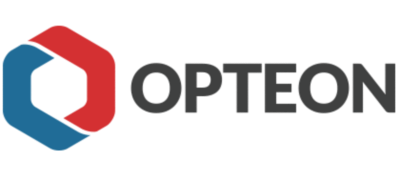Â鶹´«Ã½ GO FAQs
Â鶹´«Ã½ works for your business. No matter your size.
Discover more about Â鶹´«Ã½¡¯s AI-powered cloud ERP solutions across finance, HR, payroll, and planning.

Frequently Asked Questions
The ins and outs of Â鶹´«Ã½ for medium enterprises.
Does Â鶹´«Ã½ only support large enterprises?
It¡¯s true that many of the world¡¯s largest organizations use Â鶹´«Ã½, but over 75% of our customers have fewer than 3,500 employees. The cloud solution?we provide scales to meet the changing needs of our SMB customers at every stage of their growth.
What is a medium enterprise?
Here in Australia and New Zealand, medium enterprises (MEs) are generally considered to have 350 to 3,500 employees, while small and medium businesses (SMBs) can be those with fewer than 350 employees. But this varies from industry to industry. For an in-depth understanding of how small and medium enterprises (SMEs) are defined globally, and why those definitions matter read our blog:?
?
Is Â鶹´«Ã½ too expensive for my organisation to see ROI?
In a word, no. We¡¯re committed to making it easier than ever for medium enterprises to get up and running on our platform. Â鶹´«Ã½ can scale and be customised to meet the needs of small and medium businesses (SMBs), small and medium enterprises (SMEs) and large enterprises. In Australia and New Zealand, we work hand-in-hand with our partners to meet the specific needs of medium enterprises and accelerate deployment to provide you with the essential HCM and ERP functionality you need at a price and on a timeline you can afford.
Is my organisation too small to benefit from Â鶹´«Ã½ AI?
Â鶹´«Ã½ AI levels the playing field between medium and large enterprises. From day one, Â鶹´«Ã½ was designed as a multi-tenant cloud with a unified data model. This means that all customers¡ªno matter their size¡ªbenefit from the clean, coherent data sets comprised of over 600B transactions per year across 65M+ users, representing organisations of a range of sizes and industries. All this data serves as high quality fuel for training our AI models.
How can enterprise resource planning (ERP) help medium enterprises?
A ?such as Â鶹´«Ã½, brings together your finance, HR, payroll, and planning into a connected workflow that optimises processes and streamlines operations. This means that no matter your size or industry, you gain full transparency across the entire organisation so you can adapt to changing business needs.
Is Â鶹´«Ã½ too complex for what I need?
Not at all. Â鶹´«Ã½ reduces complexity with streamlined processes, automation, integration, and extensibility tools. The Â鶹´«Ã½ platform unifies your data, so you get an accurate and complete picture of your business in real time across finance, workforce, and operations data¡ªrather than separate, siloed views.
Do Â鶹´«Ã½ products require more resources than my business has?
Â鶹´«Ã½ maximises the potential of your existing resources, making things easier for smaller teams. Automation, coupled with self-service, gives time back to your teams so they can focus on more valuable work, rather than being bogged down. Â鶹´«Ã½ AI frees up IT, HR, and finance from manual, repetitive tasks. It allows your teams to spend more time advancing new capabilities and less time on routine operations with the easy-to-consume updates and adaptability Â鶹´«Ã½ provides.
Why is it important for my medium enterprise to invest in a cloud ERP?
You can benefit from increased productivity and efficiency, optimised business processes, and more engaging employee and customer experiences when you invest in ERP. The Â鶹´«Ã½ platform unifies accounting, operations, and finance to streamline workflows. This enables organisations of all sizes to make confident decisions, drive flawless business operations, and empower people for maximum performance.

¡°Throughout our partnership, whenever we¡¯ve reached out, Â鶹´«Ã½ has always been there with the finance and HR technology support we needed.¡±